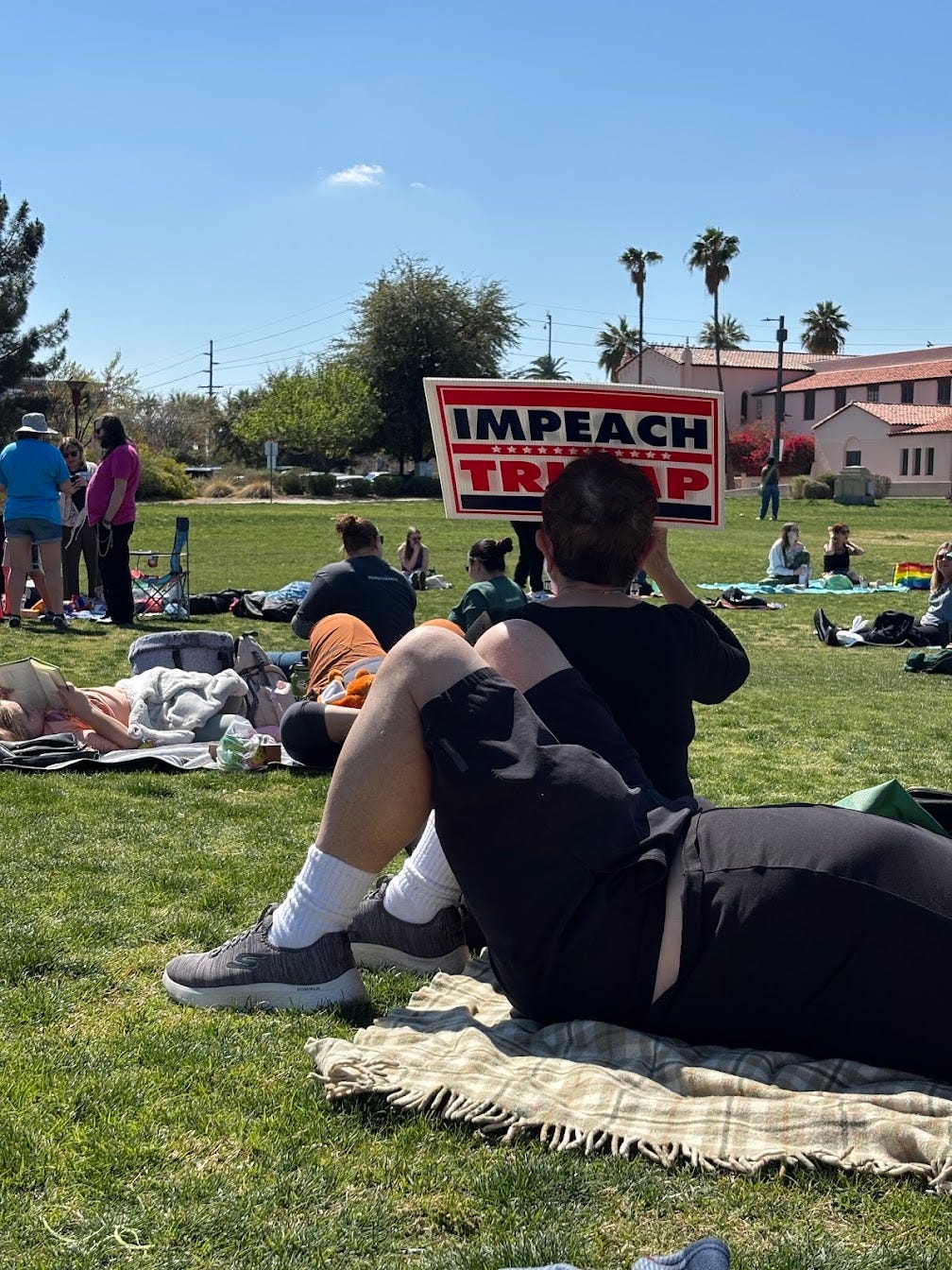The day I left, the day I said out loud, “I’m no longer your wife,” was the day I physically felt harmed. In the whirlwind aftermath of that statement, a bruise was actively forming beneath my skin, underneath a welt rising midway up my thigh.
By the end of the day, that bruise had settled in. A reminder. Evidence of quantifiable harm. And that evidence made it so I felt that I should and could leave.
And never look back.
Was it the first time I had been harmed by him? No. Far from it. The harm I had experienced, the violent outbursts near me, directed at me, in reaction to me — that had all gone on for years. The only evidence I could see was broken things.
Glassware. A laptop. Cupboards. A TV. A full soda on the windshield of my car as I backed out of the driveway.
I never saw the evidence on me until that last day, even though the evidence of that harm was inside me — in my psyche — embedded in a way that it would stamp itself on how I would read and process so many aspects of life in the future. And that is not uncommon among survivors of domestic abuse.
Everyone has their own line. And until it’s crossed, it’s easy to fold the behavior of an abuser into an envelope of intentional rationalization. To just slot that behavior there, tucked away. I see it every day while running the nonprofit I launched to assist survivors with court filing fees and process server fees.
**trigger warning here**
Oftentimes, it is the quantifiable harm that finally prompts someone to leave. The literal gun to the head. The assault. The bruises that form after an attack, complementing the ones that long have already settled into a survivor’s psyche.
It takes the tangibility of abuse to awaken a “this isn’t right” alarm.
Since I’ve long compared the Trump administration to that of a domestic abuser, I have a sense that MAGA supporters will only step back and realize that what is happening “isn’t right” once they experience a similar quantifiable harm themselves.
The ones who voted for him for “economic reasons” might not budge until the U.S. economy — labeled as the envy of the world prior to the 2025 inauguration — spirals into a recession. Imagine, the Fed carefully and strategically pulled off the coveted soft landing after COVID and this new administration is on pace to tank it in a matter of weeks.
The ones who voted for him with their investment portfolio in mind may begin to question that decision as stocks tumble, like they have been, impacting their overall wealth. I mean nothing illustrates quantifiable harm like a sliding stock market that never had to slide in the first place.
Others may feel it when someone they love can’t access the medication they need, when the health and financial benefits they’ve paid into are no longer available, when education resources their children need can’t be accessed, when there’s no one to respond to a wildfire in their backyard or when no one comes running to help after the next tornado or hurricane.
Some might also start to feel it when they’re left holding the bag on a government contract that was supposed to reimburse them with funds they’ve already shelled out, as countless people are now experiencing. Others might feel it when towns supported by a large federal workforce begin to crumble as small businesses need to adjust operations, reduce staff or even shutter as the local economy suffers from indiscriminate job loss.
It could also take unchecked aggression from Trump’s favorite dictators around the world, an inability to afford daily life thanks to an unnecessary trade war or deadly outbreaks of preventable disease. These last three are already happening, so it’s possible that some MAGA supporters are already beginning to have those quiet moments with themselves where they wonder, “Why do I stay with him?”
I’ve been there. Quantifiable harm might be the only thing, the line he crosses, that prompts MAGA supporters to break free from this undeniably abusive relationship.
It was for me. It is for a lot of abuse survivors. And there’s no reason it wouldn’t apply to MAGA supporters who, whether they accept it or not, are in an abusive relationship themselves.




